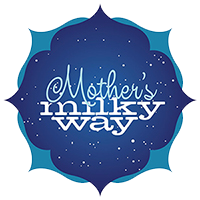Signs of Postpartum Depression
From: http://www.nimh.nih.gov/health/publications/postpartum-depression-facts/index.shtml
What is postpartum depression?
Postpartum depression is a mood disorder that can affect women after childbirth. Mothers with postpartum depression experience feelings of extreme sadness, anxiety, and exhaustion that may make it difficult for them to complete daily care activities for themselves or for others.
What causes postpartum depression?
Postpartum depression does not have a single cause, but likely results from a combination of physical and emotional factors. Postpartum depression does not occur because of something a mother does or does not do.
After childbirth, the levels of hormones (estrogen and progesterone) in a woman’s body quickly drop. This leads to chemical changes in her brain that may trigger mood swings. In addition, many mothers are unable to get the rest they need to fully recover from giving birth. Constant sleep deprivation can lead to physical discomfort and exhaustion, which can contribute to the symptoms of postpartum depression.
What are the symptoms of postpartum depression?
Some of the more common symptoms a woman may experience include:
- Feeling sad, hopeless, empty, or overwhelmed
- Crying more often than usual or for no apparent reason
- Worrying or feeling overly anxious
- Feeling moody, irritable, or restless
- Oversleeping, or being unable to sleep even when her baby is asleep
- Having trouble concentrating, remembering details, and making decisions
- Experiencing anger or rage
- Losing interest in activities that are usually enjoyable
- Suffering from physical aches and pains, including frequent headaches, stomach problems, and muscle pain
- Eating too little or too much
- Withdrawing from or avoiding friends and family
- Having trouble bonding or forming an emotional attachment with her baby
- Persistently doubting her ability to care for her baby
- Thinking about harming herself or her baby.
How can a woman tell if she has postpartum depression?
Only a health care provider can diagnose a woman with postpartum depression. Because symptoms of this condition are broad and may vary between women, a health care provider can help a woman figure out whether the symptoms she is feeling are due to postpartum depression or something else. A woman who experiences any of these symptoms should see a health care provider right away.
How is postpartum depression different from the “baby blues”?
The “baby blues” is a term used to describe the feelings of worry, unhappiness, and fatigue that many women experience after having a baby. Babies require a lot of care, so it’s normal for mothers to be worried about, or tired from, providing that care. Baby blues, which affects up to 80 percent of mothers, includes feelings that are somewhat mild, last a week or two, and go away on their own.
With postpartum depression, feelings of sadness and anxiety can be extreme and might interfere with a woman’s ability to care for herself or her family. Because of the severity of the symptoms, postpartum depression usually requires treatment. The condition, which occurs in nearly 15 percent of births, may begin shortly before or any time after childbirth, but commonly begins between a week and a month after delivery.
Are some women more likely to experience postpartum depression?
Some women are at greater risk for developing postpartum depression because they have one or more risk factors, such as:
- Symptoms of depression during or after a previous pregnancy
- Previous experience with depression or bipolar disorder at another time in her life
- A family member who has been diagnosed with depression or other mental illness
- A stressful life event during pregnancy or shortly after giving birth, such as job loss, death of a loved one, domestic violence, or personal illness
- Medical complications during childbirth, including premature delivery or having a baby with medical problems
- Mixed feelings about the pregnancy, whether it was planned or unplanned
- A lack of strong emotional support from her spouse, partner, family, or friends
- Alcohol or other drug abuse problems.
Postpartum depression can affect any woman regardless of age, race, ethnicity, or economic status.
How is postpartum depression treated?
There are effective treatments for postpartum depression. A woman’s health care provider can help her choose the best treatment, which may include:
- Counseling/Talk Therapy: This treatment involves talking one-on-one with a mental health professional (a counselor, therapist, psychologist, psychiatrist, or social worker). Two types of counseling shown to be particularly effective in treating postpartum depression are:
- Cognitive behavioral therapy (CBT), which helps people recognize and change their negative thoughts and behaviors; and
- Interpersonal therapy (IPT), which helps people understand and work through problematic personal relationships.
- Medication: Antidepressant medications act on the brain chemicals that are involved in mood regulation. Many antidepressants take a few weeks to be most effective. While these medications are generally considered safe to use during breastfeeding, a woman should talk to her health care provider about the risks and benefits to both herself and her baby.
These treatment methods can be used alone or together.
What can happen if postpartum depression is left untreated?
Without treatment, postpartum depression can last for months or years. In addition to affecting the mother’s health, it can interfere with her ability to connect with and care for her baby and may cause the baby to have problems with sleeping, eating, and behavior as he or she grows.
How can family and friends help?
Family members and friends may be the first to recognize symptoms of postpartum depression in a new mother. They can encourage her to talk with a health care provider, offer emotional support, and assist with daily tasks such as caring for the baby or the home.
